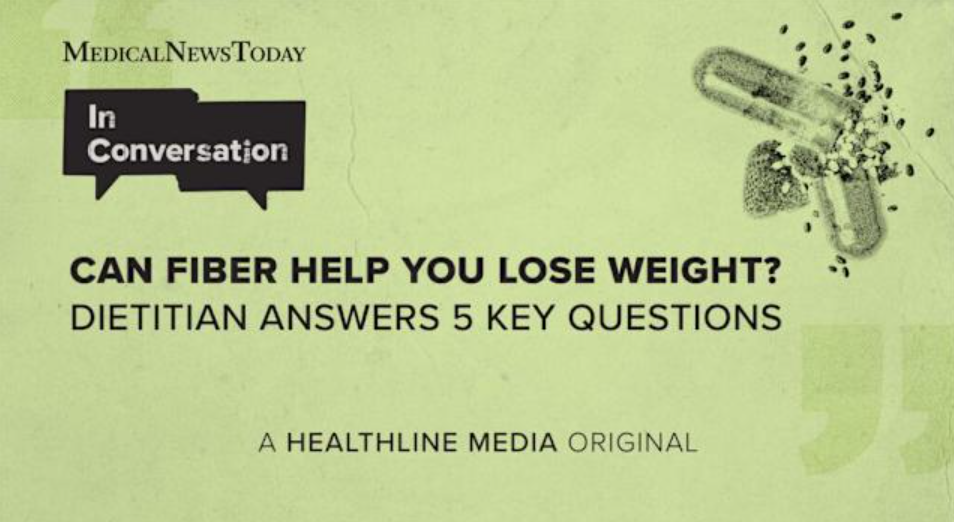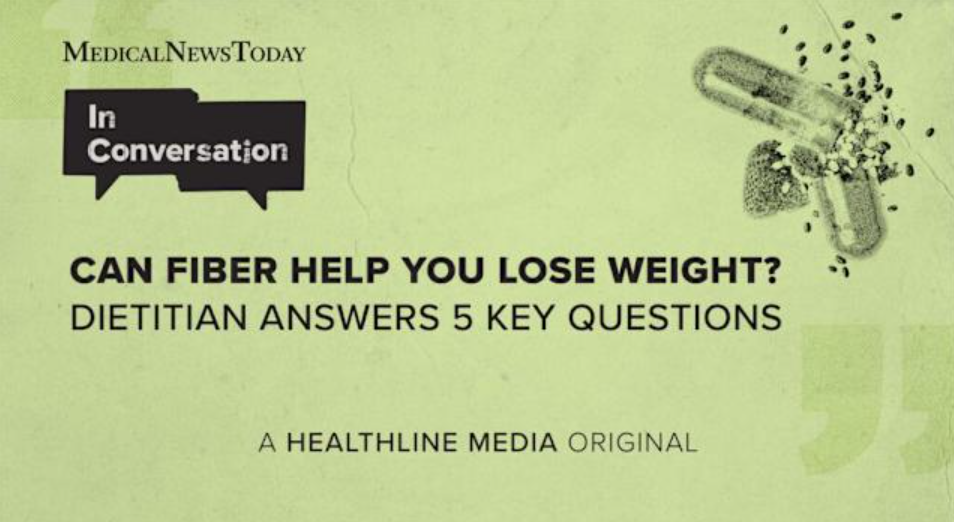Many people track their macronutrients (protein, fat, and carbs) to Weight Loss. But not much is known about fiber, a small nutrient that’s often overlooked. What happens if this is the secret to success in losing weight? Can you replace whole foods with fiber supplements? A dietitian answers questions from listeners on fiber and other nutrition topics in this podcast.
Because there are lots of articles, graphs, and recipes online these days about how to gain more protein to lose weight in a healthy way. They can range from the 30g breakfast, high protein drinks and more. And although increased protein intake obviously leads to successful weight loss, there ‘s one element of nutrition that is sometimes ignored.

Fiber plays a key role in both general health and as part of the digestive system, but it may lower LDL cholesterol, lower blood pressure, and prevent heart disease, research suggests. Fiber may also increase insulin sensitivity and help people manage weight, according to more recent research.
More than half of Americans actually do n’t get enough fiber ( less than 5% according to data ) per day, e. g. roughly 28 g for adult women and up to 34 g ( g ) True Source for adult males. How do you eat more fiber?
We are going to go into some of the important points such as what fiber is / why it is so important for our bodies in this episode of In Conversation. How can we tell if we ‘re getting enough fiber in our diet? And is it right to call fiber the Ozempic of nature?
All that while we are talking about the recommended daily intakes for different people, we are going to discuss what’s called soluble fiber versus insoluble fiber, the relationship between the health benefits of whole foods versus fiber supplements (for example psyllium husk) as well as what an important role fiber has in fighting insulin resistance and weight loss.
Whether it’s this article or other subjects, we have registered dietitian Lisa Valente, MS, RD. After completing her dietetic internship at Massachusetts General Hospital Lisa earned a Master of Science in nutrition communications from the Friedman School of Nutrition Science and Policy at Tufts University.
Which foods are the finest sources of fiber & make Weight Loss ?
After the podcast show we sat down with Lisa and asked her what she would recommend eating high fiber foods for MNU readers.
Fresh berries are good as well. On the other hand, frozen berries have a little more fiber than fresh berries. And they’re just easier to keep in the refrigerator or freezer and cheaper when bought frozen, you can use them for oatmeal or yogurt — they don’t go bad in a day, she said.
Lisa recapped one interesting fiber/carb thing and said whole wheat spaghetti would be her second choice.
While whole wheat pasta is a lot more fiber-dense than white pasta, brown rice only has one gram more fiber than white rice. That gives your supper a good, high-fiber carbohydrate base to which you can add protein or vegetables, ” she said.
Chia seeds were her third option.
I use them in my oatmeal, but you can soak them in milk or nondairy milk and add a little bit of fruit for chia seed pudding. They have fiber, omega-3 fatty acids, and a little bit of protein, and they’re really satisfying. So I think they’re kind of this tiny little but huge little seed that you can check off a bunch of nutrition boxes at once. So that’s a nice place for me to go if I have to pick three, ” she told us.
In Discussion: What is known about Wegovy’s weight reduction plateau?
Weight loss is supported by many, many medications called semaglutide which are used to treat type 2 diabetes. One such medication is licensed to treat obesity and overweight and is being promoted as the brand name Wegovy. But why do some people who take Wegovy plateau in their weight loss? We talk about this with our expert guest, In Conversation.



